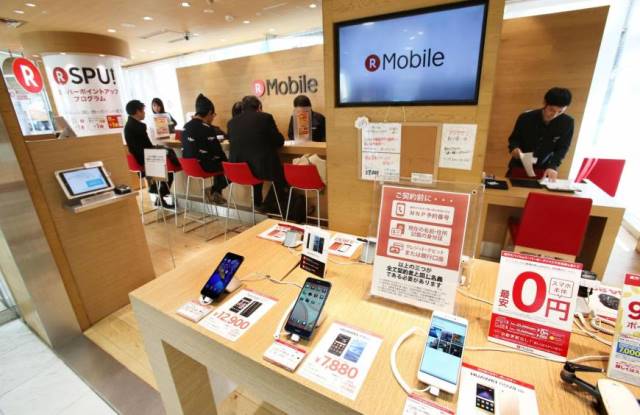Rakuten, an e-commerce company, is set to challenge the dominance of major carriers such as NTT Docomo, KDDI and SoftBank in Japan.
 Rakuten, which has entered new business areas such as online securities trading, aims to start offering mobile services in October 2019. It has won government approval to offer mobile services.
Rakuten, which has entered new business areas such as online securities trading, aims to start offering mobile services in October 2019. It has won government approval to offer mobile services.
NTT Docomo, KDDI and SoftBank are strong that eMobile, which entered Japan’s telecom market in 2007, added 4 million subscribers in 6 years before it was bought by SoftBank in 2013.
Rakuten is aiming to secure at least 15 million subscribers. By comparison, No. 3 carrier SoftBank has about 39 million subscribers.
The planned capital investment (Capex) will leave the company with an additional 600 billion yen or $5.34 billion in debt, Nikkei reported.
Operating cash flow of Rakuten increased from 1.4 billion yen in 2013 to 111.8 billion in 2014, but after the peak, it declined again for two straight years, coming to 30.7 billion.
Japan’s big three carriers have demonstrated that the mobile business virtually guarantees a steady stream of cash. NTT Docomo, KDDI and SoftBank have logged about 1 trillion yen the past three years.
SoftBank uses its steady inflow of mobile fees to service its debt and help fund big global investments. NTT Docomo and KDDI have been generating a few hundred billion yen of free cash flow each year.
Rakuten will face significant challenges in the Japan telecom market. It will use a spectrum band to be vacated by Japan’s Ministry of Defense. This will happen in stages, with several prefectures scheduled to open up only in 2022. Rakuten’s mobile service will not be nationwide in time for the 2020 Tokyo Olympics.
Rakuten executive vice president Yoshihisa Yamada said the company fully intends to make a profit on the mobile business.
